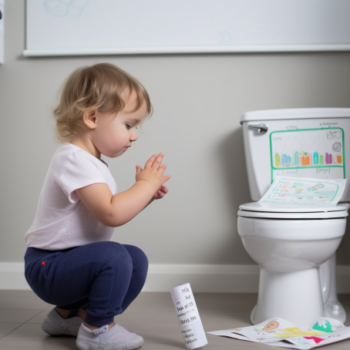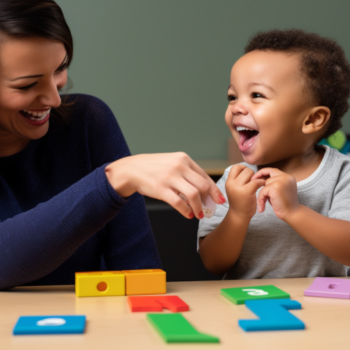Are you a parent in the midst of potty training your child? One common question that arises is how often should your child be going to the bathroom during this phase? Well, the frequency may vary depending on various factors. Generally, children should be encouraged to use the toilet every 1-2 hours. However, it's crucial to understand that each child is unique, and their bodily functions differ. Some kids may need more frequent bathroom breaks, especially if they've consumed plenty of fluids. Keep an eye out for signs like fidgeting, holding their private parts, or doing a potty dance, indicating they need to go. Remember, patience and consistent reminders are key. With time and practice, your child will become more independent in recognizing when they need to use the bathroom.
Tag: child
Is it Normal for My Child to Experience Potty Training Accidents? A Parent’s Guide
Are you worried about your child having potty training accidents? Rest assured, it is completely normal for kids to have occasional accidents during the potty training process. Potty training is a developmental milestone, and just like any other skill, it takes time and practice to master. Accidents can occur for various reasons, such as your child being too engrossed in play or not recognizing the urge to go in time. It's important to remain patient and supportive during this learning phase. Encourage your child to use the toilet regularly, offer gentle reminders, and praise their efforts. Remember, accidents are part of the process, and with time, consistency, and positive reinforcement, your little one will conquer potty training successfully.
The Ultimate Guide to Knowing When to Start Night Weaning Your Baby
Night weaning is a major milestone for both babies and parents. While it's important to follow your baby's cues, there are some signs that may indicate they're ready for night weaning. If your baby is consistently sleeping for longer stretches at night, they may be ready to drop some night feedings. Additionally, if they're eating well during the day and gaining weight appropriately, they may not need as many night feedings. However, it's important to consult with your pediatrician before starting any night weaning process. Remember that every baby is different and there's no one-size-fits-all approach to night weaning. It's important to be patient, consistent, and compassionate throughout the process.
Signs Your Child is Ready for Potty Training: A Comprehensive Guide
Potty training is a major milestone for children and parents alike. However, it can be a challenging process if your child is not ready. So, how can you tell if your child is ready to start potty training? Look for signs like showing interest in the bathroom, indicating when they need to go, and staying dry for a longer period. Additionally, if your child can follow simple instructions and communicate effectively, they may be ready to start potty training. Keep in mind that every child is different, and some may take longer to get the hang of things. Be patient and consistent, and with time, your child will master the art of potty training.
The Importance of Step Stools for Potty Training Your Child
If you're in the midst of potty training your little one, you may be wondering if a step stool is necessary. The answer is yes! A step stool can make the potty training process much easier for both you and your child. It allows them to easily climb up to the toilet and sit comfortably, increasing their sense of independence and reducing the likelihood of accidents. Additionally, a step stool can help prevent strain and discomfort for your child's legs and feet while they sit on the toilet. Overall, investing in a step stool is a simple and effective way to make potty training a smoother and more successful experience.
Effective Ways to Make Reading Fun for Your Child
As a parent, you want to instill a love of reading in your child, but it can be tough to get them excited about picking up a book. Thankfully, there are many ways to make reading more fun for your child. Encourage their interests by finding books on subjects they enjoy, let them choose their own books at the library or bookstore, create a cozy reading space with pillows and blankets, and read aloud together. You can also try gamifying reading by setting goals and rewarding your child for reaching them. With a bit of creativity and some patience, you can make reading a fun and enjoyable activity for your child.
The Ultimate Guide to Understanding Potty Training Regression Duration
Potty training regression can be a frustrating setback in the process of getting your child diaper-free. It's important to know that regression is normal and it happens to many children. The length of regression varies from child to child, but it can last anywhere from a few days to a few weeks. The key to overcoming regression is to stay consistent with the potty training routine and be patient. Regression can happen due to changes in your child's routine or environment, so it's important to be aware of any potential triggers. With patience and persistence, your child will get back on track with potty training.
7 Common Potty Training Mistakes Every Parent Must Avoid
When it comes to potty training, there are a few common mistakes that many parents make. Firstly, starting too early can lead to frustration and setbacks. Secondly, inconsistent or vague instructions can confuse your child. Thirdly, using punishment instead of positive reinforcement can create anxiety and negative associations. Lastly, not being prepared for accidents and not having a plan for nighttime training can lead to stress for both parents and children. By avoiding these common mistakes, you can help ensure a smoother and more successful potty training experience for your child.
Potty Training Timeline: How Long Does It Take to Successfully Train a Child?
Potty training is a significant milestone for both parents and children. However, the duration of the process varies for different children. Some may take a few days, while others may need several months or even longer. Factors such as age, temperament, and readiness play a crucial role in determining how long it takes to potty train a child. Nevertheless, it is important to be patient and consistent in the process, as pushing a child too hard or rushing them can lead to regression. With the right approach, encouragement, and rewards, most children can successfully transition from diapers to using the toilet in due time.
7 Easy and Fun Ways to Teach Your Child the Alphabet
Teaching your child the alphabet is an important milestone in their development. It can be a fun and engaging process that helps them learn new things and establish a foundation for future learning. There are many creative ways to teach the alphabet, such as singing songs or playing games. Using interactive tools like flashcards or alphabet puzzles can also be effective. It's important to make learning the alphabet a positive experience for your child, so be patient and keep the activities age-appropriate. By taking the time to teach your child the alphabet, you're setting them up for success in their academic journey.


